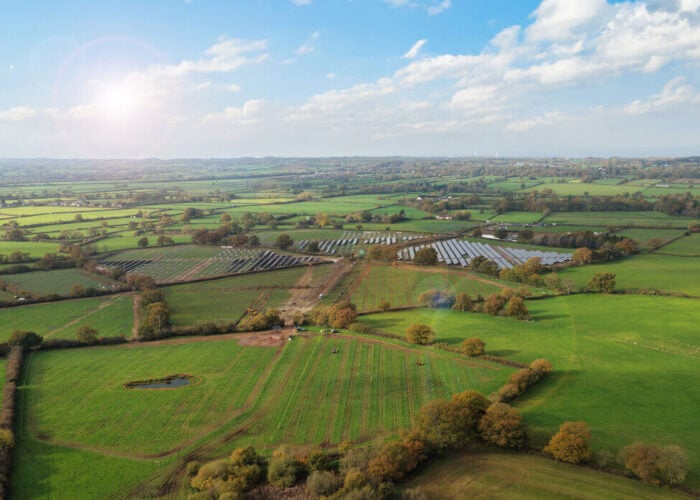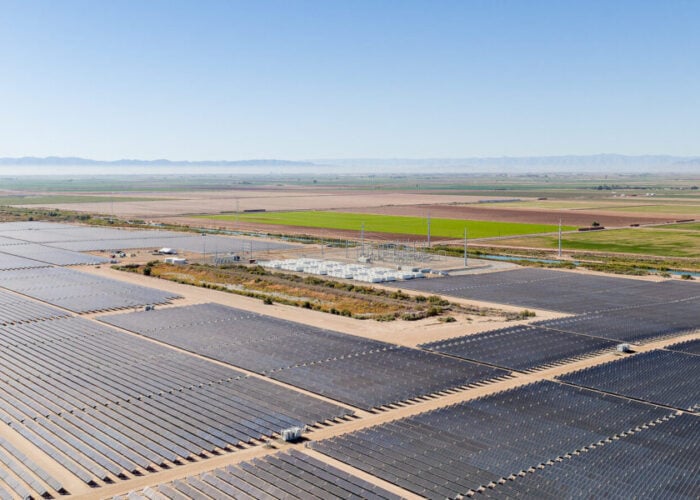
A mix of GW-scale tenders and net metering support for residential arrays could help Turkey install at least 1GW of solar every year starting in 2020, local industry representatives have told PV Tech.
Eren Engur, founder and CEO of consultancy Icarus Energy, sounded bullish about the future growth prospects of Turkish solar when approached by this publication in recent days, following the publication of official installation stats for last year.
Try Premium for just $1
- Full premium access for the first month at only $1
- Converts to an annual rate after 30 days unless cancelled
- Cancel anytime during the trial period
Premium Benefits
- Expert industry analysis and interviews
- Digital access to PV Tech Power journal
- Exclusive event discounts
Or get the full Premium subscription right away
Or continue reading this article for free
Pointing at the new figures from state transmission operator TEIAS – which showed Turkey’s solar market is nearing a cumulative 6GW, after installing 923MW in 2019 – Engur said he believes 2020 will be “the start of a sustainable market of 1GW per annum”.
“In 2020 we’ll be expecting [solar] installations of around 800-1.000MW, mostly coming from self-consumption rooftop projects,” said Engur, who is a board member of Turkish solar body GÜNDER and heads up the association’s Energy Storage Committee.
The forecasts of a 2020 rooftop bonanza follow Turkey’s adoption last May of a new net metering programme, which offers customers electricity bill discounts in return for the PV power they inject into the grid. The aid will, think tank IEEFA believes, shorten payback periods from 16 to 12 years.
GW-scale tenders, storage to diversify Turkey’s PV mix
If GÜNDER believes Turkish solar’s 2020 will be rooftop-dominated, the association expects growth to diversify starting in 2021. From that year, Engur predicted, the country will start connecting PV under the GW-scale tenders, as well as hybrids and energy storage systems.
The 1GW solar tenders go back to 2016 and are part of a broader programme, known as YEKA under its Turkish acronym. The scheme is predicted to become Turkey’s vehicle of renewable support after years of feed-in tariff incentives, which for PV reached 13.3 US dollar cents per kWh.
Quizzed over energy storage, GÜNDER’s Engur was similarly optimistic about the growth he believes will be driven by government projects, rising power prices and momentum around hydrogen and electric vehicles. Storage, he said, is “at the top of the government’s and investors’ agenda”.
Engur’s remarks came as part of conversations for a broader feature into the state of play of Turkish solar. The article, set to be part of the upcoming issue of PV Tech Power (see below for more information) will examine the industry’s odds of success as it eyes 1GW-a-year growth rates.
The meteoric rise of Turkish solar – with IRENA stats finding major installed PV capacity jumps between 2016 (833MW), 2017 (3.4GW) and 2018 (5.06GW) – has come despite macro-economic instability, with analysts warning of impacts from currency volatility on project finance.
The feature examining the opportunities and challenges of Turkish solar will be part of PV Tech Power's Volume 22, which will come out in mid-to-late February. Follow this link to subscribe.






